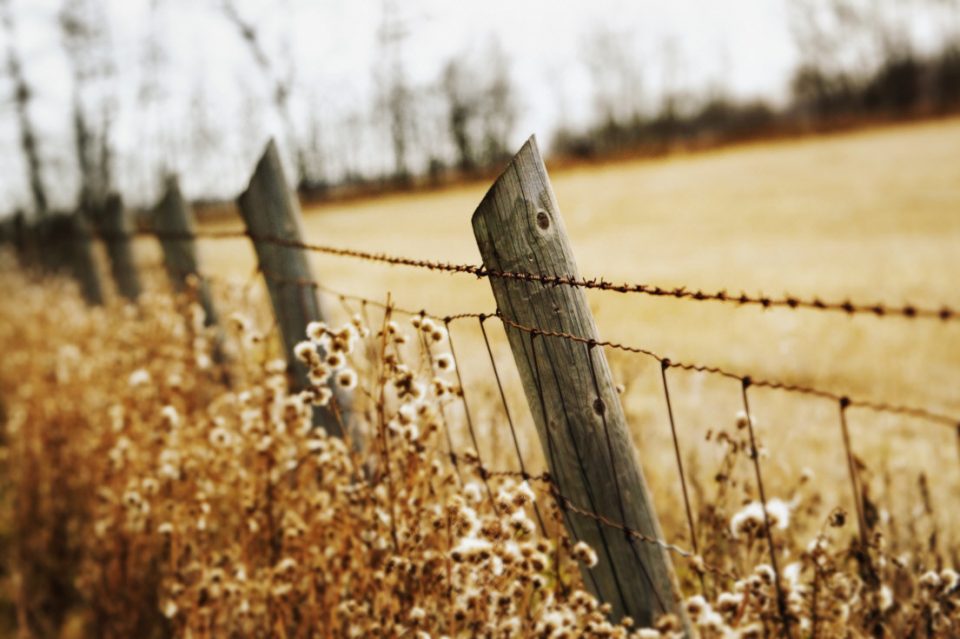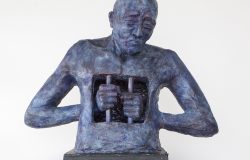Border security is managed carefully by most countries. What is let through and out of borders – materials and people – is of utmost importance to the economic and political efficacy of counties that see themselves as separate from and in competition with other countries. Some borders are vigilant at protecting its citizens and the economy from the spectre of dark possibilities. Other borders are more laissez faire allowing the free market to flourish and human traffic, both legal and illegal, to flow without too many controls.
Growing up with sanctions and post-war rationing in the tiny country of Zimbabwe/Rhodesia, I remember crossing the border into South Africa and being amazed by the choice and splendour of products in the shops. We would gorge ourselves like Augustus Gloop in Willy Wonka’s chocolate factory with all the luxuries our barren shops could never offer. Frenzied, we would stockpile bizarre and eclectic goods to take home for ‘special occasions’: tins of tuna and salmon, tubs of halva, chocolates, good fitting underwear, whiskey and exotic liqueurs and the latest in fashion and fragrance. Then came the tricky part – getting our contraband back into the home country!
There were stringent foreign currency restrictions and somehow our stockpile always exceeded allowances. Fines and confiscation loomed and every border crossing became a gamble with fate – sometimes you could pass through the border unquestioned, other times you became the chosen one, your luggage riffled through by arrogant and rightfully suspicious security personnel who knew you were lying about what was new and old, what were gifts and what was purchased with your precious foreign currency. Bribes became implied in conversations and gradually everyone learned that there were rules, but they were flexible in how they were applied, and money spoke a universal language.
When it comes to our own minds and the thoughts that rent space within us, most of us set up rules and border security that have control over what we see as acceptable for ourselves and others – what’s allowed in and out. From time to time we might suspend the rules, look the other way or make an exception because of unique criteria. Sometimes we break our rules and change our border control protocols because we simple want to – our desires override logic and some other force within us wins its way. Other times it’s simply time to upgrade our operating systems to a new and more modern way of doing things.
So, when is a boundary a healthy boundary to have and protect and when do you know that it’s okay to allow that border to have porous edges? Our personal boundaries serve to define us. They are established from our conclusions and beliefs, opinions, attitudes and past experiences about life. We put them in place to have guidelines and permissible ways for how others can behave towards us and they will trigger a response from us when those boundaries are crossed or we sense that the guidelines are being abused. Our borderlines control traffic in both directions – the incoming and outgoing interactions we have.
Rigidly adopting boundaries can prevent transformation, but guileless disregard for self-care is a slippery slope to losing yourself. You have to keep form and not give in to the innumerable possibilities that your life could take. If you drop a personal standard and accept the bribes of immediate gratification you can lose your life. You blow apart if you don’t or can’t choose what your life is going to represent. You need to stand in a form so that others can understand you and so that you might know who you are.
Knowing when to give in, when to stand firm, when to fall over and when to get back up – this is the tantalising, tender and painfully intricate dance of life.
How do we grow mentally, spiritually and emotionally if we slavishly stay bound to our rules? You don’t map new territories if you forbid exploration. Psychological cartography is not necessary if you’re never prepared to let new information and people through your border controls.
We all know that feeling of mental stress we undergo when our life asks us to hold or perform two or more contradictory beliefs or ideas at the same time. Hating the way technology dominates our lives but loving the convenience of texts that tell you that your children are safely arrived somewhere coexists in many parents. What about the cognitive dissonance we experience when new information comes to light that radically conflicts with our previously held values and ideas, say for example, when democracy doesn’t deliver you the leader you wanted?
Recently I watched a video of people who chose to have DNA testing done to identify their genetic heritage. Fervent Francophones with an innate hatred towards the British became horrified that they were 30% English. Greeks learned they were a quarter Turkish, the Bengalese were a mix of Pakistani, the Cuban had Icelandic genes, a Jew discovered that more than half his DNA was derived from Islamic nations. Those previously held animosities harboured around other types of people suddenly became devoid of meaning when their DNA was inside them.
Throughout our lives quite suddenly and in an eerie manner what mattered in such significant ways can dissolve and we need to reform a new boundary for who and how we are in this life. The paradox is this – the line between a personal boundary and a limiting belief is as thin as the blade of a razor.
The esteemed psychologist Christopher Bollas suggested that as humans we spend our lives searching out objects of interest – both human and material, which serve to enhance our particular and peculiar idioms (styles) of life. For Bollas, the sign of a healthy life, or a well-adjusted human is someone who is willing to risk exposure to these transformational objects (human and material) in order to accept being metamorphosed. Bollas had a beautiful way of describing this as the Unthought Known – that uncanny experience that you know something but you have never thought about it before.
The start of any new year or anniversary is often a time for us to reflect on what we have achieved, how we went about living our lives; what worked and didn’t, what needs to change and what needs to be kept sacred. It becomes about assessing our boundaries and running an audit on our border security to check the shape and health of our internal territories.
I know many people who choose a word to represent the year ahead, or a symbol that denotes the characteristics with which they will embrace life for the coming year. It becomes a charm with which they can mentally hold themselves to account – they can ask themselves, “Am I living life as a hummingbird (for example) operating with great courage, protecting my boundaries, but fearlessly living, holding onto life with a lightness of being and being enchanting to those around me?”
It’s about finding the word or symbol that will do justice to the form you will embody for 2017. It will give you shape yet allow you to stretch; to explore but not get lost; to fall more into who you knew you could be but had never thought about yourself as so. Find and become something strangely familiar and as yet unknown.







Thanks Cal, really loved this one. I’m still struggling to find the right word/symbol for 2017 but your words have reminded me to stop trying so hard to create the right one and just let one slowly unfold. Thank you. (Maybe tortoise is my word, slow seems to be my pace this year!)